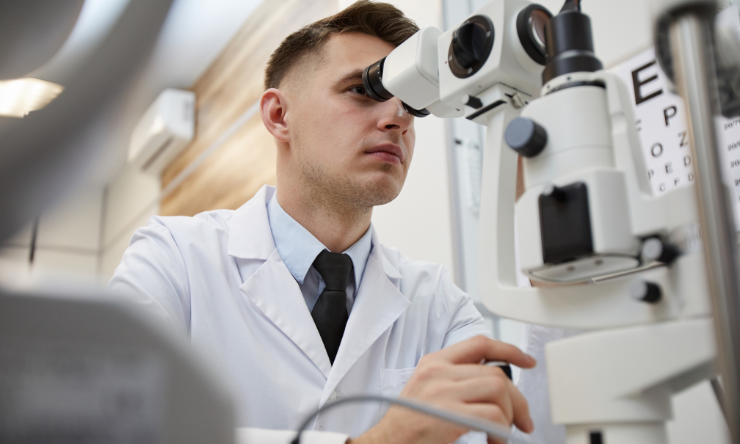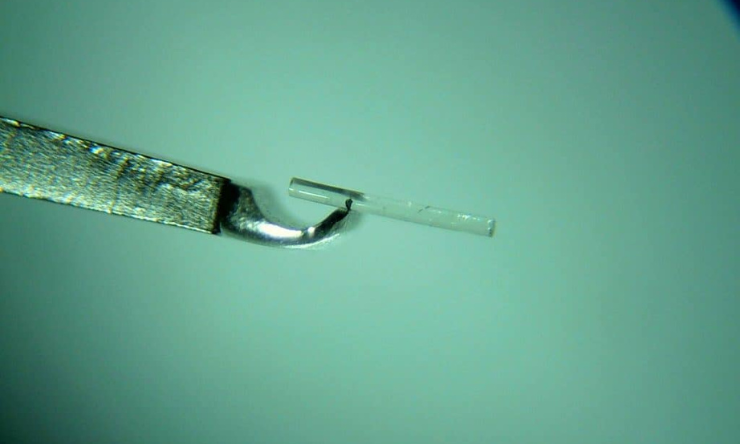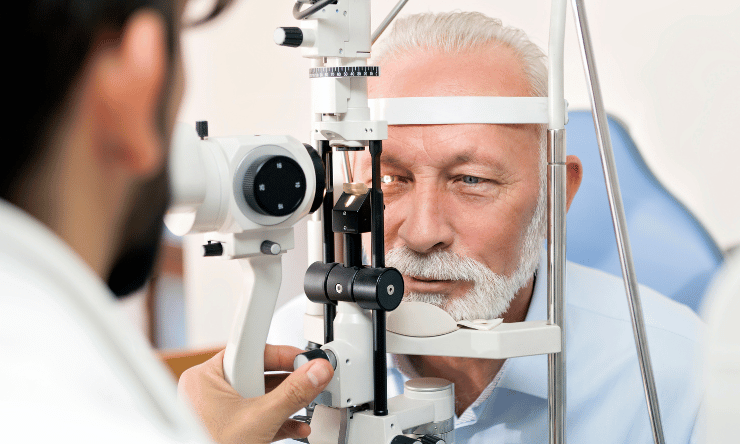Share
Glaucoma is a chronic and incurable condition, but there are proven, effective medical treatments to help control it, slow it down, and save your sight.

Given there is no simple cure though, it is not surprising people may look to alternative therapies. The internet is awash with potential ‘cures’, often promoting ‘natural alternatives’ in place of mainstream treatment options. An internet search for glaucoma treatment will throw up many websites, most focussed on some form of dietary supplementation to treat glaucoma. Some contain useful information regarding the nature of glaucoma, but others are factually incorrect, misleading, and many aim to sell a product. Websites from major institutions around the world tend to provide more balanced information.
Some websites set out to denigrate and demonise mainstream glaucoma treatment by focussing on potential side effects from eye drops, or the risks of surgery. With all medications there are potential side effects. Medications used to treat glaucoma have been scientifically studied and tested. There are known side effects that we look for. The industry is regulated with processes in place for reporting side effects and adverse outcomes (the supplement industry is relatively unregulated). With all interventions in medicine (or in life for that matter!) we must weigh up the risks and benefits of a treatment against the risk of the disease.
In this case the risk of losing vision from glaucoma, sometimes the decision is not straight forward. This can be decided after discussion with your treating practitioner – and will depend on the specifics of your case. There are safe and effective treatment options available for glaucoma, with long-term validated data available.
Some websites offer testimonials and anecdotal cases about cures. I am sceptical about such claims, but it is hard to comment when the full details of a case are not known. It is important to remember that glaucoma is really a group of conditions with many different subtypes. The particulars of individual cases vary greatly.
Treating glaucoma involves lowering the intraocular pressure (IOP), ideally 24hrs a day. While it is true some supplements or even physical interventions may have a minor effect lowering the IOP, these are far less effective than conventional treatments. The pharmaceutical industry is always on the lookout for effective agents to commercialise - if other agents are out there it is highly likely they would have been bottled by now. The first medication used to treat glaucoma in the 1800s was in fact an herbal medicine, from the pilocarpus plant. It has since found its way into commercially manufactured eye drop bottles still used today.
When looking at alternative and complementary therapies it is important not to disregard mainstream treatment. If you do use alternative therapies or supplements, there is still a need for ongoing supervision and monitoring. This is because vision lost from glaucoma cannot be regained, and can occur before it becomes noticeable to the patient. Many Ophthalmologists would be open to patients using dietary supplements (provided they are safe) in conjunction with our scientifically proven therapies. They should not be used as an alternative, however.
It is a good idea to discuss with your treating doctor all medications you are taking including natural remedies and supplements. This is important for your overall care. It is important to remain under the supervision of a specialist, to minimise the chance of blindness.
Summary
- Supplementary medicines are not as effective as conventional glaucoma treatment, and should not be used as an alternative
- Discuss any dietary supplements with your specialist - there is no reason healthy dietary supplements and lifestyle changes can’t be adopted alongside conventional glaucoma treatments
- Glaucoma is a complex, incompletely understood and ultimately incurable condition but there are many beneficial treatments available to help patients retain their sight and quality of life
- Beware of miracle cures or a ‘quick fix’ peddled over the internet.



